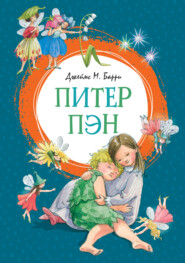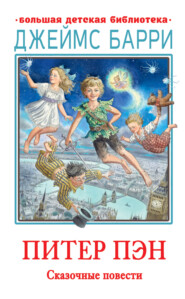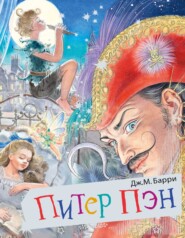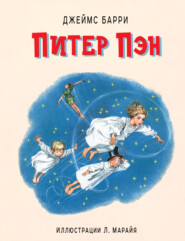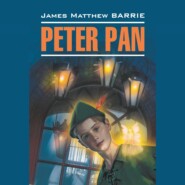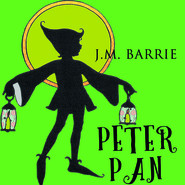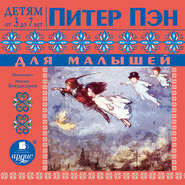По всем вопросам обращайтесь на: info@litportal.ru
(©) 2003-2025.
✖
The Little Minister
Настройки чтения
Размер шрифта
Высота строк
Поля
“When did she die?” Babbie inquired.
“Lang syne,” he answered, still with averted face.
“What is your name?”
“Micah is my name. Rob Dow’s my father.”
“And have you no brothers nor sisters?” asked Babbie, with a fellow-feeling for him.
“No, juist my father,” he said.
“You should be the better laddie to him then. Did your mither no tell you to be that afore she died?”
“Ay,” he answered, “she telled me ay to hide the bottle frae him when I could get haed o’t. She took me into the bed to make me promise that, and syne she died.”
“Does your father drina?”
“He hauds mair than ony other man in Thrums,” Micah replied, almost proudly.
“And he strikes you?” Babbie asked, compassionately.
“That’s a lie,” retorted the boy, fiercely. “Leastwise, he doesna strike me except when he’s mortal, and syne I can jouk him.”
“What are you doing there?”
“I’m wishing. It’s a wishing stane.”
“You are wishing your father wouldna drink.”
“No, I’m no,” answered Micah. “There was a lang time he didna drink, but the woman has sent him to it again. It’s about her I’m wishing. I’m wishing she was in hell.”
“What woman is it?” asked Babbie, shuddering.
“I dinna ken,” Micah said, “but she’s an ill ane.”
“Did you never see her at your father’s house?”
“Na; if he could get grip o’ her he would break her ower his knee. I hearken to him saying that, when he’s wild. He says she should be burned for a witch.”
“But if he hates her,” asked Babbie, “how can she have sic power ower him?”
“It’s no him that she has haud o’,” replied Micah, still looking away from her.
“Wha is it then?”
“It’s Mr. Dishart.”
Babbie was struck as if by an arrow from the wood. It was so unexpected that she gave a cry, and then for the first time Micah looked at her.
“How should that send your father to the drink?” she asked, with an effort.
“Because my father’s michty fond o’ him,” answered Micah, staring strangely at her; “and when the folk ken about the woman, they’ll stane the minister out o’ Thrums.”
The wood faded for a moment from the Egyptian’s sight. When it came back, the boy had slid off the Standing Stone and was stealing away.
“Why do you run frae me?” Babbie asked, pathetically.
“I’m fleid at you,” he gasped, coming to a standstill at a safe distance: “you’re the woman!”
Babbie cowered before her little judge, and he drew nearer her slowly.
“What makes you think that?” she said.
It was a curious time for Babbie’s beauty to be paid its most princely compliment.
“Because you’re so bonny,” Micah whispered across the dyke. Her tears gave him courage. “You micht gang awa,” he entreated. “If you kent what a differ Mr. Dishart made in my father till you came, you would 215 maybe gang awa. When he’s roaring fou I have to sleep in the wood, and it’s awfu’ cauld. I’m doubting he’ll kill me, woman, if you dinna gang awa.”
Poor Babbie put her hand to her heart, but the innocent lad continued mercilessly —
“If ony shame comes to the minister, his auld mither’ll die. How have you sic an ill will at the minister?”
Babbie held up her hands like a supplicant.
“I’ll gie you my rabbit,” Micah said, “if you’ll gang awa. I’ve juist the ane.” She shook her head, and, misunderstanding her, he cried, with his knuckles in his eye, “I’ll gie you them baith, though I’m michty sweer to part wi’ Spotty.”
Then at last Babbie found her voice.
“Keep your rabbits, laddie,” she said, “and greet no more. I’m gaen awa.”
“And you’ll never come back no more a’ your life?” pleaded Micah.
“Never no more a’ my life,” repeated Babbie.
“And ye’ll leave the minister alane for ever and ever?”
“For ever and ever.”
Micah rubbed his face dry, and said, “Will you let me stand on the Standing Stane and watch you gaen awa for ever and ever?”
At that a sob broke from Babbie’s heart, and looking at her doubtfully Micah said —
“Maybe you’re gey ill for what you’ve done?”
“Ay,” Babbie answered, “I’m gey ill for what I’ve done.”
A minute passed, and in her anguish she did not know that still she was standing at the dyke. Micah’s voice roused her:
“You said you would gang awa, and you’re no gaen.”
“Lang syne,” he answered, still with averted face.
“What is your name?”
“Micah is my name. Rob Dow’s my father.”
“And have you no brothers nor sisters?” asked Babbie, with a fellow-feeling for him.
“No, juist my father,” he said.
“You should be the better laddie to him then. Did your mither no tell you to be that afore she died?”
“Ay,” he answered, “she telled me ay to hide the bottle frae him when I could get haed o’t. She took me into the bed to make me promise that, and syne she died.”
“Does your father drina?”
“He hauds mair than ony other man in Thrums,” Micah replied, almost proudly.
“And he strikes you?” Babbie asked, compassionately.
“That’s a lie,” retorted the boy, fiercely. “Leastwise, he doesna strike me except when he’s mortal, and syne I can jouk him.”
“What are you doing there?”
“I’m wishing. It’s a wishing stane.”
“You are wishing your father wouldna drink.”
“No, I’m no,” answered Micah. “There was a lang time he didna drink, but the woman has sent him to it again. It’s about her I’m wishing. I’m wishing she was in hell.”
“What woman is it?” asked Babbie, shuddering.
“I dinna ken,” Micah said, “but she’s an ill ane.”
“Did you never see her at your father’s house?”
“Na; if he could get grip o’ her he would break her ower his knee. I hearken to him saying that, when he’s wild. He says she should be burned for a witch.”
“But if he hates her,” asked Babbie, “how can she have sic power ower him?”
“It’s no him that she has haud o’,” replied Micah, still looking away from her.
“Wha is it then?”
“It’s Mr. Dishart.”
Babbie was struck as if by an arrow from the wood. It was so unexpected that she gave a cry, and then for the first time Micah looked at her.
“How should that send your father to the drink?” she asked, with an effort.
“Because my father’s michty fond o’ him,” answered Micah, staring strangely at her; “and when the folk ken about the woman, they’ll stane the minister out o’ Thrums.”
The wood faded for a moment from the Egyptian’s sight. When it came back, the boy had slid off the Standing Stone and was stealing away.
“Why do you run frae me?” Babbie asked, pathetically.
“I’m fleid at you,” he gasped, coming to a standstill at a safe distance: “you’re the woman!”
Babbie cowered before her little judge, and he drew nearer her slowly.
“What makes you think that?” she said.
It was a curious time for Babbie’s beauty to be paid its most princely compliment.
“Because you’re so bonny,” Micah whispered across the dyke. Her tears gave him courage. “You micht gang awa,” he entreated. “If you kent what a differ Mr. Dishart made in my father till you came, you would 215 maybe gang awa. When he’s roaring fou I have to sleep in the wood, and it’s awfu’ cauld. I’m doubting he’ll kill me, woman, if you dinna gang awa.”
Poor Babbie put her hand to her heart, but the innocent lad continued mercilessly —
“If ony shame comes to the minister, his auld mither’ll die. How have you sic an ill will at the minister?”
Babbie held up her hands like a supplicant.
“I’ll gie you my rabbit,” Micah said, “if you’ll gang awa. I’ve juist the ane.” She shook her head, and, misunderstanding her, he cried, with his knuckles in his eye, “I’ll gie you them baith, though I’m michty sweer to part wi’ Spotty.”
Then at last Babbie found her voice.
“Keep your rabbits, laddie,” she said, “and greet no more. I’m gaen awa.”
“And you’ll never come back no more a’ your life?” pleaded Micah.
“Never no more a’ my life,” repeated Babbie.
“And ye’ll leave the minister alane for ever and ever?”
“For ever and ever.”
Micah rubbed his face dry, and said, “Will you let me stand on the Standing Stane and watch you gaen awa for ever and ever?”
At that a sob broke from Babbie’s heart, and looking at her doubtfully Micah said —
“Maybe you’re gey ill for what you’ve done?”
“Ay,” Babbie answered, “I’m gey ill for what I’ve done.”
A minute passed, and in her anguish she did not know that still she was standing at the dyke. Micah’s voice roused her:
“You said you would gang awa, and you’re no gaen.”







